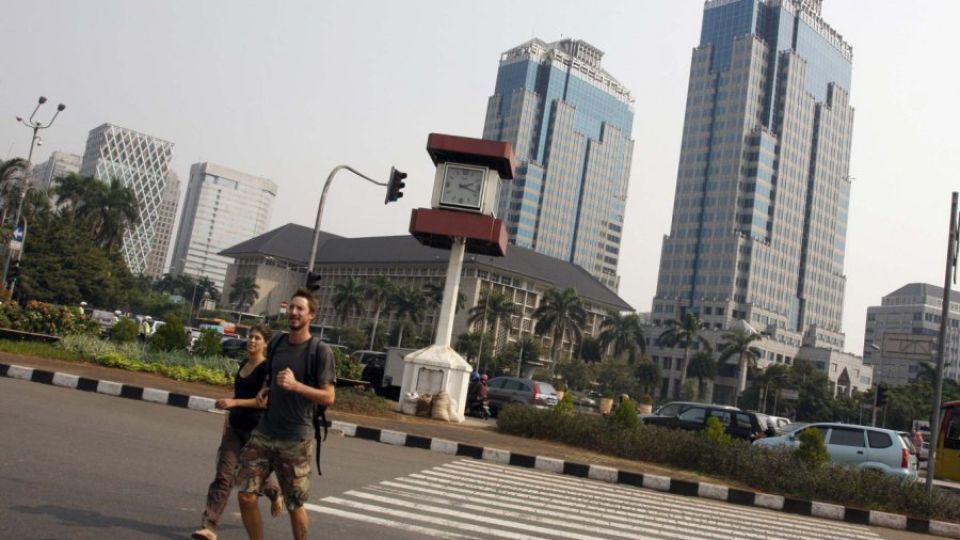December 15, 2023
JAKARTA – The Indonesian Chamber of Commerce and Industry (Kadin) has encouraged the government to attract more skilled expatriates to work in the country, hoping this can spur advanced and high-tech jobs that could end up boosting the economy. However, some experts pointed out that an increment in foreign workers should not neglect local workforce absorption.
Tigor M. Siahaan, Kadin’s department head of monetary policy and financial services, suggested that the government should put more effort into attracting expatriates, claiming that the number of foreigners working in Indonesia should be between one and two million, and that more needs to be done to reach foreign direct investment (FDI) targets.
“I think in the era of advanced technology, such as artificial intelligence [AI], we need those global talents to come here and teach us,” he said during the Economic Outlook 2024 event organized by the Center of Reform on Economics (CORE) on Tuesday.
Some foreign business associations have raised concerns related to the complexity of the work permit process as well as a lack of clarity and transparency in the government’s regulations on foreign workers.
The European Business Chamber of Commerce in Indonesia (EuroCham) wrote in its position statement in July 2023 that the government should simplify the requirements for work permit applications for foreigners, as this would increase foreign investment and attract more foreign workers who can transfer knowledge and skills to Indonesian workers.
Indonesia had over 138,000 foreign workers in the first ten months of this year, according to Manpower Ministry data. The figure was up from more than the 111,000 people recorded at the end of last year.
Around 48 percent of this year’s expatriates came from China, followed by Japan and South Korea, with both contributing around 9 percent.
Foreigners only represent 0.05 percent of Indonesia’s population, which Tigor said is very small compared to other Asian countries.
In comparison, Thailand and Japan house 4 million and 2.7 million expatriates, respectively, despite having far smaller populations than Indonesia, he said.
Singapore even has 1.77 million foreign people living in the country, which amounted to 30 percent of their population, he added.
“What does it mean? Those countries are bringing the best talent to help their own people to learn. In Indonesia, we attract around US$30 billion in foreign direct investment every year, but those investments do not bring the know-how,” Tigor explained.
Read also: Diaspora welcomes new visa, but not the cost
CORE executive director Mohammad Faisal said the comparison with Thailand, Japan and Singapore is not like comparing apples to apples, as those countries do not face a workforce surplus like Indonesia. According to him, Indonesia’s conditions are more similar to those of the Philippines.
“The difference is that the Philippines can export their workforce to other countries as they have better skills and English proficiency,” he told The Jakarta Post on Wednesday.
Faisal agreed that an influx of expatriates could support the growth of Indonesia’s economy. However, he stressed the necessity to prioritize domestic workers if they have the skills required for the job. Such policies are also being implemented in advanced economies, such as Australia, according to him.
He suggested that any investment should incorporate training to prepare local workers needed by the industry, adding that this could ensure absorption of domestic manpower amid an influx of foreign investment in Indonesia.
In September, the government introduced a golden visa scheme to grant a residence permit for talented individuals and corporate investors from abroad for an extended period of five to 10 years. Open AI CEO Sam Altman was among the individuals that the government had chosen to grant the visa to.
However, experts have doubted whether the visa can effectively attract investors or talent, citing problems in the country’s business climate and security stability.
Read also: Police probe deadly clash at nickel smelter
Krisna Gupta, a senior fellow at the Center for Indonesian Policy Studies (CIPS), agreed that the country needs more skilled foreign workers, as some companies have expressed that they have had difficulty finding domestic workers with specific skills.
“However, the government needs to get detailed information on the kinds of job that those foreigners would do when they are applying for temporary stay permits (KITAS). Therefore, regulators could get insights into what skills the country lacks, and prepare more training in that field,” Krisna said to the Post on Wednesday.
Kadin’s Tigor is aware that having more foreigners may be met with resistance from local people fearing that they would take over job opportunities in the country, but he believed the government could always prioritize attracting skilled talent.
According to Tigor, more expatriates in the country would open more job opportunities in the country, especially for locals with basic and middle-level skills.
“Their kids would need a teacher; they would eat from local restaurants and they would have local vacations. I think one expatriate can have the multiplier effect of creating jobs for 20 to 30 people. A million expatriates could create 20 million new jobs,” he said.
The Manpower Ministry did not immediately respond to comment.


